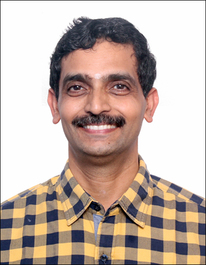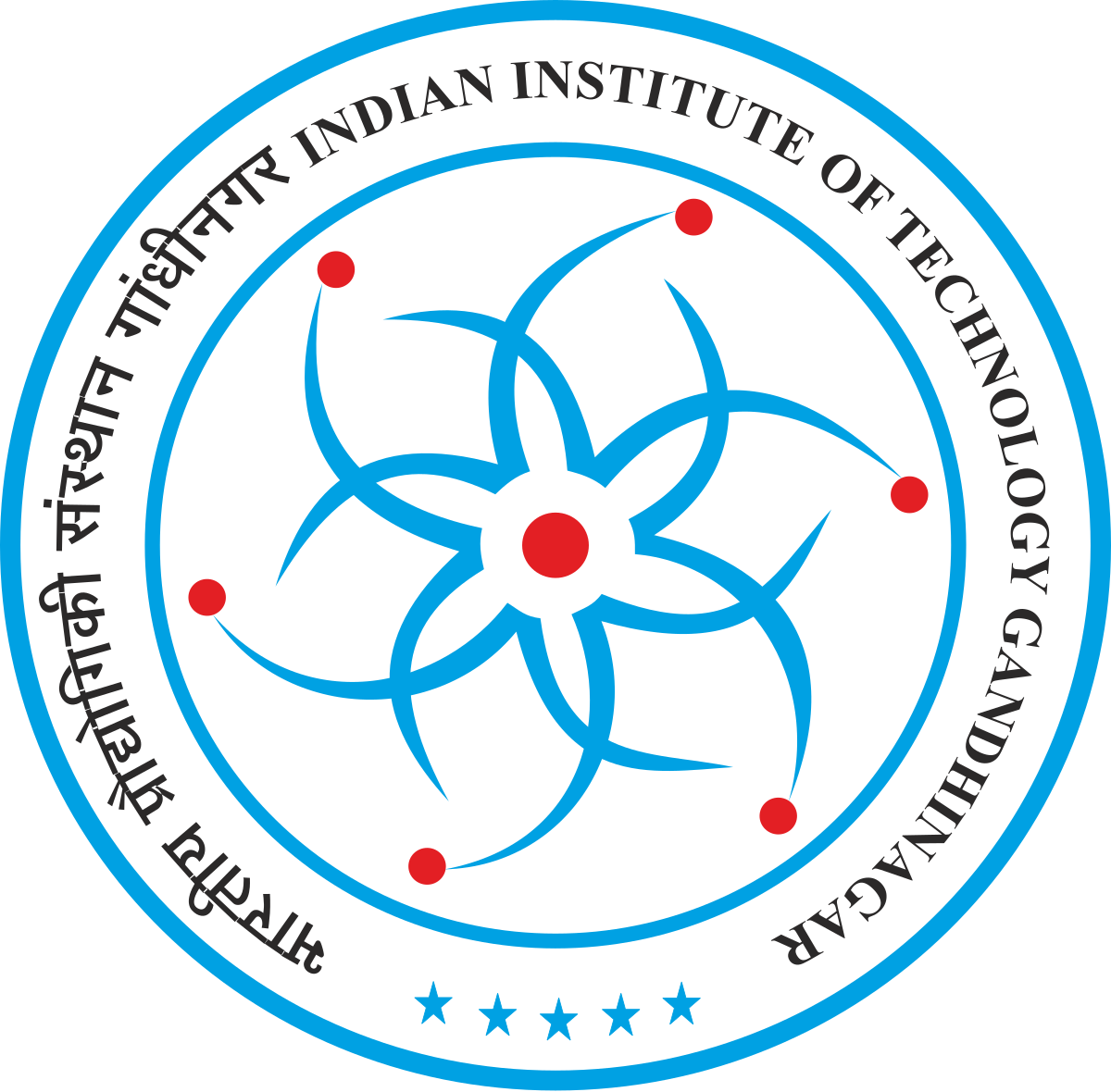
Professor Dan Kilper
Director & Principal Investigator
CONNECT Centre
Topic: Energy Efficiency for Optical Communications in 5G and Emerging 6G Networks
Abstract
Optical networks are undergoing an architectural transformation driven by a combination of challenges to traditional scaling and the emergence of new application areas. Radio access and core networks, i.e. 5G and emerging 6G networks, are central to this transformation and energy efficiency plays a crucial role. The combination of disaggregation and intelligence at the edge are defining characteristics of the new mobile standards. While potentially providing greater functionality for sustainable development broadly, they struggle to achieve energy efficient and sustainable implementations in their own right. Increasingly there is interest in using optical networks to improve the scalability and efficiency of these radio network architectures. This talk will examine how optical network architectures are changing to meet these challenges and the role of energy efficiency.
Bio
Professor Dan Kilper is the Director of the CONNECT Centre, and Principal Investigator. He is Professor of Future Communication Networks in the School of Engineering in Trinity College Dublin.
Professor Kilper received his PhD in physics from the University of Michigan in 1996. From 2000 to 2013, he was a member of the technical staff at Bell Labs. He is a senior member of IEEE, a topical area editor for the IEEE Transactions on Green Communications and Networking (TGCN) and chairs the optics working group in the IEEE International Network Generations Roadmap. He was recognized as a 2019 NIST Communications Technology Lab Innovator and holds eleven issued patents and authored six book chapters and more than one hundred sixty-seven peer-reviewed publications. His research is aimed at solving fundamental and real-world problems in communication networks in order to create a faster, more affordable, and energy efficient Internet, addressing interdisciplinary challenges for smart cities, sustainability, and digital equity.
Professor Kilper comes to CONNECT from the University of Arizona where he held a research professorship in the College of Optical Sciences, and a joint appointment in Electrical and Computer Engineering. He also holds an adjunct faculty position in the Data Science Institute at Columbia University, where he is a co-PI on the COSMOS advanced wireless testbed. He was lead PI on the founding project of SFI’s US-Ireland Research and Development Partnership and has served in leadership positions in multiple international university-industry research centres including participating in CONNECT’s precursor, CTVR, while he was at Bell Labs.
Professor Krishna Moorthy Sivalingam
Dept of CSE, IIT Madras
Topic: On Programmable Data Plane Network Switches and their Applications
Abstract
Traditional network switches and routers are configurable, but not programmable. They can only perform a small set of hard-wired and specific network layer activities. The advent of programmable data planes (PDP), realized using hardware switches, and the Programming Protocol-independent Packet Processors (P4) language enable a switch to be customizable and field-programmable. In this talk, we will briefly the PDP and P4 concepts including the switch architectures and high-level language constructs. We will then describe how these can be used to realize next generation network switches/routers and advanced network applications.
Bio
Krishna Sivalingam is an Institute Chair Professor in IIT Madras; and earlier, a faculty member at University of Maryland, Baltimore County; Washington State University; and University of North Carolina
Greensboro. He received his Ph.D. and M.S. in Computer Science from SUNY Buffalo; B.E. degree in Computer Science and Engineering from Anna University’s College of Engineering Guindy, Chennai. He has served as Editor-in-Chief of Springer Photonic Network Communications Journal and EAI Transactions on Future Internet. He is a Fellow of IEEE, Fellow of INAE India and ACM Distinguished Scientist.
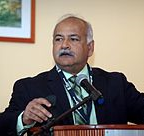
Professor Biswanath Mukherjee
Distinguished Professor Emeritus
University of California, Davis
Bio
Mukherjee obtained his bachelor’s degree in technology with honors from Indian Institute of Technology Kharagpur in 1980 and got his Ph.D. from University of Washington in 1987. The same year (1987) he joined the Department of Computer Science at University of California, Davis where he became a Professor in 1995, and Distinguished Professor in 2011. From 1997 to 2000 he served as chair of the Computer Science Department. During 1995–2000, he held the Child Family Professorship at UC Davis. To date, he has supervised 80 PhDs to completion and currently mentors 6 advisees, mainly PhD students.
Besides being a respected computer scientist, he also served on numerous editorial boards and was General Co-Chair of the IEEE/OSA Optical Fiber Communications (OFC) Conference 2011, Technical Program Co-Chair of OFC’2009, and Technical Program Chair of the IEEE INFOCOM’96 conference. He is Editor of Springer’s Optical Networks Book Series. He has served on eight journal editorial boards, most notably IEEE/ACM Transactions on Networking and IEEE Network. In addition, he has guest-edited Special Issues of Proceedings of the IEEE, IEEE/OSA Journal of Lightwave Technology, IEEE Journal on Selected Areas in Communications, and IEEE Communications. He was the first elected chairman of Communication Society’s Optical Networking Technical Committee. He was a founding member of the Board of Directors (2002-2007) of IPLocks, Inc., a Silicon Valley startup company, acquired by Fortinet, Inc. He also served as a founding member of the Board of Directors (2015-2018) of Optella, Inc., an optical components startup, acquired by Cosemi, Inc. To date, he has served on the Technical Advisory Board for over a dozen startup companies, including Teknovus (acquired by Broadcom), Intelligent Fiber Optic Systems, and LookAhead Decisions. He is Founder and President of Ennetix, Inc., a startup company incubated at UC Davis and developing AI-powered, cloud-based, application-centric network performance analytics and management software for improved user experience.
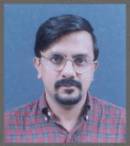
Professor D. Manjunath
Electrical Engineering Department
IIT Bombay
Topic: Paying for our Bits
Abstract
Internet services is a complex economic interaction between three key actors: Content providers (CPs), consumers, and Internet service providers. Quality of the user experience in networked applications is, traditionally considered the responsibility of the Internet service provider (ISP). The ISPs though face the triple whammy of increasing demands on network resources, shorter technology lifecycles resulting in more frequent infrastructure investments, and a very cost sensitive customer base. Smart pricing schemes can help extract some of the consumer surplus. Net neutrality and other regulations are forcing ISPs to find innovative ways of extracting the CP side surplus.
In this talk we will explore some of the ways in which the ISPs are able to provide improved user experience and have CPs pay for their investment in the infrastructure. Using microeconomic models we will then analyse the effect on the CP market structure.
Bio
D. Manjunath has been with the Electrical Engineering Department of IIT Bombay since July 1998. He has previously worked in the Corporate R \& D Center of GE in Scehenectady NY (1990), CIS Department of the University of Delaware (1992–93), CS Department, University of Toronto (1993–94) and the EE Department of IIT Kanpur (1994–98). At IIT Bombay, he was Head of the Computer Centre during 2011-15. His research interests are in the general areas of communication networks and performance analysis. Some of his recent research has concentrated on economics of the Internet and learning models for recommendation systems. He is a recipient of the best paper award at ACM SIGMETRICS 2010. He was an associate editor of IEEE Transactions on Networking, Queueing Systems: Theory and Applications, and of Sadhana: The Proceedings of the Indian Academy of Sciences and is currently an editor of Current Science. He was TPC chair for COMSNETS 2011 and NCC 2015 and general chair for ACM MobiHoc 2013, COMSNETS 2015, and ACM SIGMETRICS/IFIP PERFORMANCE 2022. He is a coauthor of two textbooks, Communication Networking: An Analytical Approach (May 2004) and Wireless Networking (Apr 2008), both of which are published by Morgan-Kaufman Publishers.

Professor Massimo Tornatore
Department of Electronics, Information, and Bioengineering
Politecnico di Milano
Topic: End-to-end Learning or Parameter Refinement? How Machine Learning can lead us to Low-Margin Optical Network Design
Abstract
Machine learning is the main enabaler of the modern concept of “low-margin” optical network design. In this talk I will discuss two intrinsically different, yet complementary ways to apply Machine Learning to this new design problem.
Bio
Massimo Tornatore is currently an Associate Professor with the Department of Electronics, Information, and Bioengineering, Politecnico di Milano. He also holds an appointment as Adjunct Professor at University of California, Davis, USA and as visiting professor at University of Waterloo, Canada. His research interests include performance evaluation, optimization and design of communication networks (with an emphasis on the application of optical networking technologies), network virtualization, network reliability and machine learning application for network management. In these areas, he co-authored more than 400 peer-reviewed conference and journal papers (with 20 best paper awards), 2 books and 1 patent. He is a member of the Editorial Board of IEEE Communication Surveys and Tutorials, IEEE Communication Letters, IEEE Transactions on Network and Service Management, IEEE Transactions on Networking, and Elsevier Optical Switching and Networking. Dr. Tornatore is an IEEE Fellow.
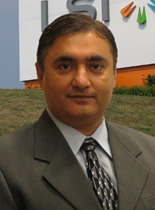
Deepak Kataria
Principal Solution Consultant for Ericsson
Topic: Journey Towards Autonomous Operation of 5G & Beyond Networks
Abstract
Bio
Deepak Kataria has over 25 years’ experience in data networking, cloud computing and telecom domains with unique distinction of having worked in technical leadership roles with AT&T Bell Labs, Lucent Technologies, Fujitsu, Agere Systems, LSI and HCL America. He co-founded IPJunction Inc in 2009 consulting telco clients on new solution opportunities, target markets, product management consulting and ecosystem partnerships. Currently, he serves as the Principal Solution Consultant for Ericsson working on AT&T projects. He was Chair of IEEE Princeton Central Jersey Section from 2020- 2022, General Chair of IEEE Sarnoff Symposium since 2015 and leads the IEEE FNI Group on AI/ML as Co-Chair. He holds B.S. in Electronics and Communications Engineering, and pursued M.S. and Ph.D. degrees in Electrical Engineering from Rutgers University. He completed Harvard’s Emerging Leader’s professional program on virtual leadership covering strategy, customer focus, corporate governance, and innovation.
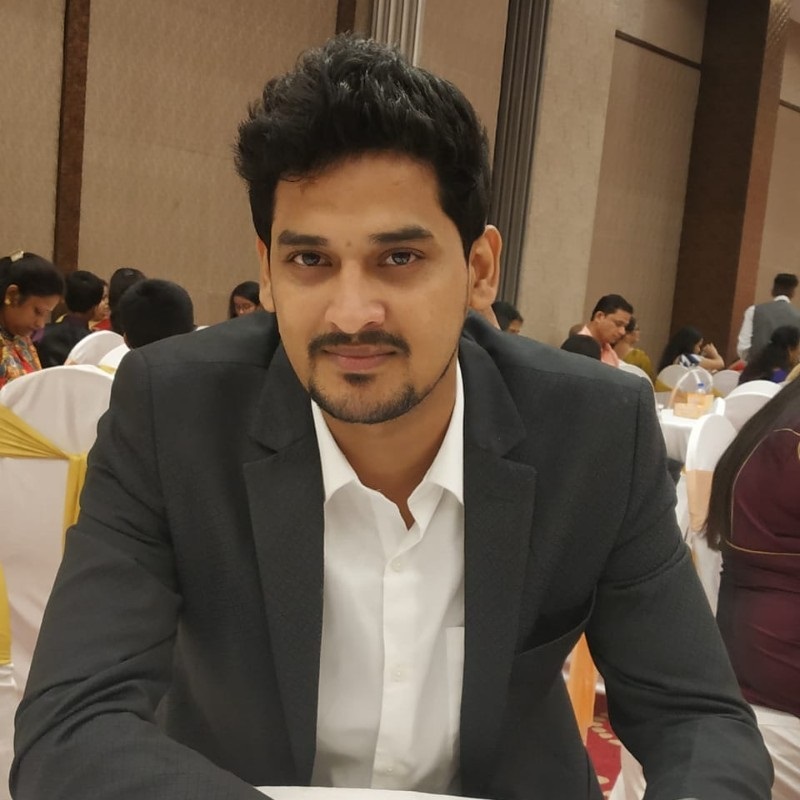
Arun Sharma
Business Development Manager
Netweb Technologies India Pvt. Ltd
Topic: Way forward with 5G and Private 5G
Bio
Arun Sharma is a Business Development Manager at Netweb Technologies India Pvt. Ltd. He has Seven years of experience designing Solutions on Workstations, Servers, Storage, AI ML & DL for the Higher Education & Research Sector. He is involved in many High-Performance Computer solutions offered by Netweb Technologies India Pvt. Ltd.
Industrial Talks
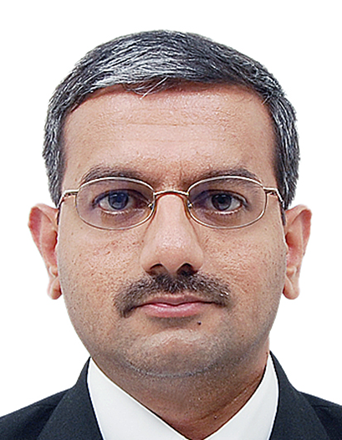
Suyog Moogi
Director
Group Head – Modem Software Networks Team,
Samsung R&D India Bangalore
Topic: Networks Perspective – Scalable, Secure and Sustainable Connectivity.
Currently responsible for Modem Software development and MAC scheduler performance analysis for cellular networks base station for global customers.
Experience:
25+ Years of experience in design, development and commercialization of modem software for multi RAT (2G/3G/4G) mobile chipsets and 4G/5G base stations.
Education:
BE (E&C) – College of Engineering, Pune
M. TEch (Signal Processing) – IIT Kanpur
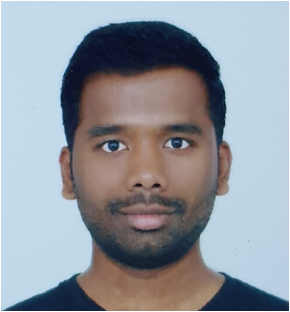
Ganesh Chandrasekaran
Manager – Samsung Cloud Orchestrator
Networks Team, Samsung R&D India Bangalore
Topic: Telco’s Journey to the Clouds
Currently responsible for managing Cloud Orchestrator product and Network Slice Management product development encompassing end to end telco domain.
Experience with Samsung
- 2021-2022: Manager, Cloud Orchestrator, Management Software & Analytics Group, India
- 2018-2021: Senior Engineer, Cloud Orchestrator, Management Software R&D Group, South Korea
Education
- Doctorate from 5G/6G Innovation Centre, University of Surrey, United Kingdom
- Masters in Telecommunication from University College London (UCL), United Kingdom
- Bachelor in Electronics and communication from Anna university, India
Specialization
- Telco Cloud IaaS – OpenStack, Kubernetes, Network Function Virtualisation (NFV) – MANO
- Network Slice Management, (NSMF) Software Defined Networking (SDN)
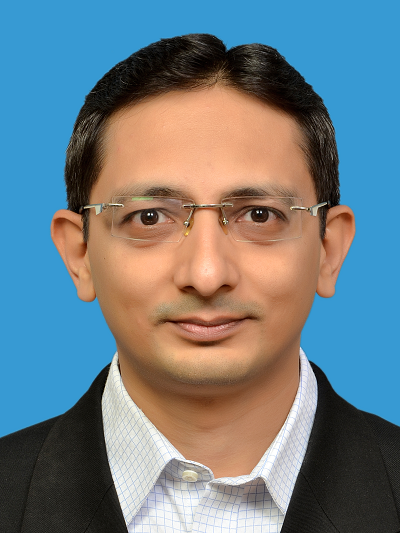
Shilpesh Shah
Sr. Solution Architect
AMD
Topic: Innovation Solving the World’s Most Challenging Problems
Abstract:
Computing power is very essential to everything that we do. How we can build it in most Scalable, Secure and Sustainable way is very important. In this talk we will explore the technology innovations by AMD to address these challenges and how it translates into business benefits for customers to achieve highest compute performance in the most secure and sustainable way across various application deployment scenarios and at any scale.
Bio
Shilpesh is Sr. Solution Architect for AMD. His charter is to drive technology evangelization and adoption of innovative solutions across Industry verticals closely working with Customers, OEMs, ISVs, ODMs and System Integrators. He has 25 years of IT Industry experience. Prior to joining AMD, he held various roles like business development, solution architecture, consulting etc. with many large MNCs in the IT Industry. He has experience working with variety of enterprise datacenter and cloud technology areas. He likes solving customer challenges with innovative solutions.



